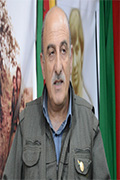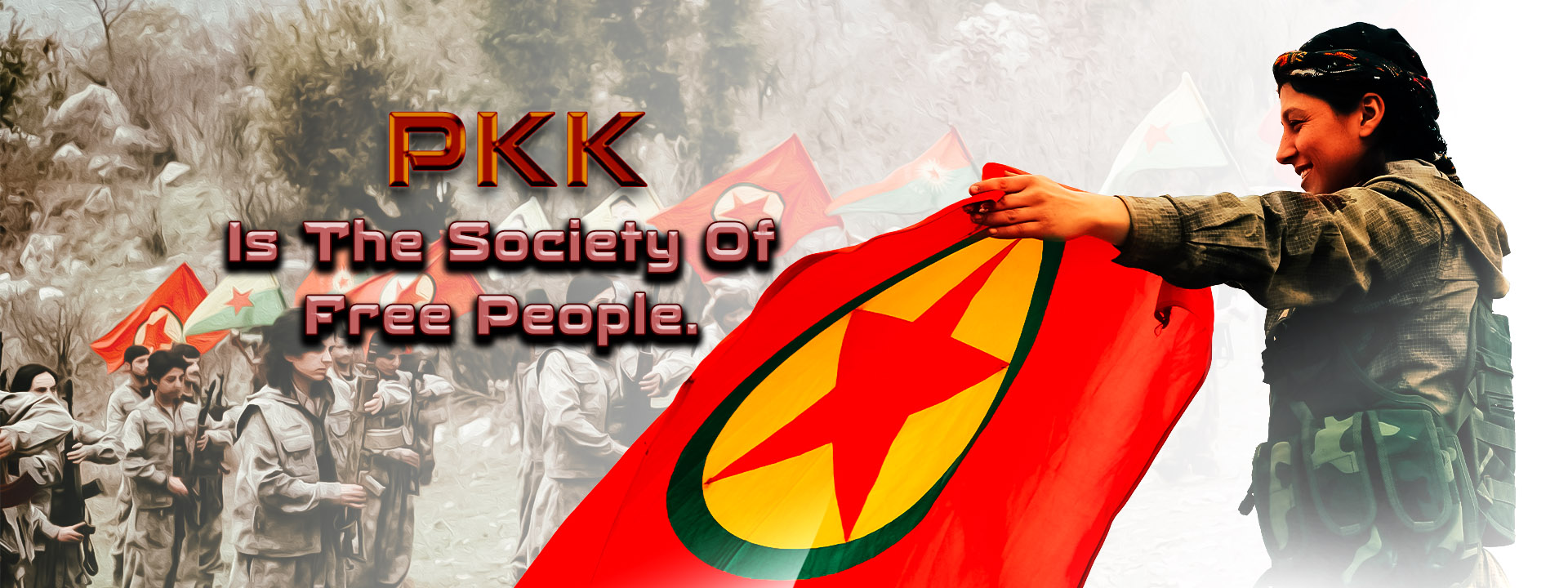 There were two specific characteristics of the local elections held in Turkey on the 30th of March. The first was the fact that the election was a showdown between the AKP and the Fetullah Gulen movement; or, to be even more precise, a showdown between Recep Tayyip Erdogan and Fetullah Gulen.
There were two specific characteristics of the local elections held in Turkey on the 30th of March. The first was the fact that the election was a showdown between the AKP and the Fetullah Gulen movement; or, to be even more precise, a showdown between Recep Tayyip Erdogan and Fetullah Gulen.
The second distinct characteristic was the head-to-head struggle between the BDP and the AKP in Kurdistan. This can also be defined as the struggle between the organised face of the Kurdish political struggle, the BDP, and representing the Turkish state, the AKP.
In terms of both of these main characteristics, the local elections was more a referendum. As a matter of fact, during the heated debates leading up to the election, all sides uttered this very word.
The Republican People's Party (CHP) and the Nationalist Action Party (MHP) were barely able to proclaim themselves as subjects of the election. This is because in terms of being an alternative to the AKP, both these parties fall way short. Due to their extreme nationalism and actual fascism, they can't even be recognised as democratic alternatives. Even though they tried to benefit from the AKP-Fetullah conflict to muster a few extra votes, they were woefully unsuccessful.
The conflict between the AKP and the Fetullah Gulen movement has ended the coalition that brought them both to power on the 3rd of November, 2002. There is no longer an AKP-Fetullah Gulen coalition.
Without a doubt, the USA, EU, KDP, CHP and MHP all have vested interests in this conflict. Even Iran, Russia and China could be added to these. In 2002, the USA backed this coalition, however, in the recent conflict the USA clearly sided with the Fetullah Gulen movement. Maybe the best way to define the conflict politically is that it is actually between the AKP and the USA. The Fetullah Gulen movement has been utilised by the USA in this conflict.
The separation of political paths during the past three years between the USA and the AKP is clear for everyone to see. This process began as a conflict between the AKP and Israel; however, step by step, the policies towards Iran, Iraq, Egypt and Syria turned this into a separation between the USA and the AKP. Behind the Fetullah Gulen movement is coalition of the USA, United Kingdom, Israel and the CHP-MHP; while the AKP has been able to rally support from Germany, France, Russia, Iran and China. Although the administration in South Kurdistan - specifically the KDP - has relationships with both sides, during this time it has largely supported the AKP. The decisive factor here being the as of yet not very well documented depth of the economic and business ties between the AKP and the KDP.
Preliminarily, it seems as if Recep Tayyip Erdogan has come out on top in the duel played out on the 30th of March. I say preliminarily because the way the USA and the Fetullah Gulen movement conduct their business is not similar to that of the AKP. Therefore, even though they lost at the ballot box on the 30th of March, this does not mean the fight is over for them. Recep Tayyip Erdogan, by singularising the target as the Fetullah Gulen movement, pulled these powers into its own fighting arena - the ballot box - where he was able to beat them. However, the forthcoming presidential and general elections will no doubt be seen by the USA and the Fetullah Gulen movement as an opportunity for revenge.
Politics in Turkey is passing through a very critical stage. The campaign for presidential election due to take place in August has started. This election will be more decisive in announcing the real winner and will give us a clearer insight into the new politics of Turkey. It is as of yet unclear how each conflicting side will approach the aforementioned election. However, there are signs for both a reconciliation or a deepening of the conflict. Whereas the possible approach of the USA-Fetullah Gulen movement is unclear, the AKP is seeming to look for a reconciliation but without a retreat of its current stance.
It can be observed that the AKP's plan is for Recep Tayyip Erdogan to be President, while Abdullah Gul becomes Prime minister. By getting the USA to accept this formula, the AKP is looking to reconcile with the USA. However, the USA's stance on this is not yet clear. Besides, this formula also depends on the stance of the Kurds.
On the 30th of March, the overwhelming majority of the Kurdish people voted for "Democratic Autonomy". The fact that the BDP won mayorships in a total number of eleven cities, of which three were metropolitan, shows this; even though it could hardly be called a fair and democratic election. The AKP disproportionately utilised all state apparatus and even cheated in places like Urfa, Bingol, Mus, Tatvan, Ceylanpinar and Agri. It can be easily said that this was the most unfair and fraudulent election of the Republic's ninety year history. Depsite this, the BDP came out with an overwhelming win.
The unassimilated part of Kurdistan, east of the Euphrates, has clearly voted for democratic autonomy. It is well known to everyone that the cities of Urfa, Bingol and Mus were fraudulently won by the AKP. Despite this, the election map clearly marks out a geography demanding for democratic autonomy. The results to the West of the Euphrates, only shows the humanitarian crime committed by the Turkish state in assimilating the Kurds.
In the referendum of the 30th of March, 2014, the Kurds said yes to democratic autonomy. This is the fourth referendum that the Kurds have recently won. The first was on the 29th of March, 2009. The organised face of the Kurdish political struggle back then was the DTP. Preceding that was the referendum that was held on the 12th of September, 2010. Those who wanted democratic autonomy in Kurdistan also won this referendum. The third referendum in which the Kurds were victorious was the general elections held on the 12th of June, 2011.
Therefore, the elections held on the 30th of March was the fourth referendum. It is time for everyone to recognise the will of the Kurdish people demanding for democratic autonomy. Those that are not separatists and are for democratic unity should specifically recognise this.
However, it is evident that neither the Turkish state or the AKP government want to recognise this will. It is also evident that other powers such as the European Union do not have a different stance to that of the Turkish state. Everywhere these powers talk about "the will of the people", however, when it comes to the Kurds, this principle is forgotten. Global democracy cannot be realised with such a double standard.
Rather than acknowledging the will of the Kurdish people and solving the Kurdish question within a democratic framework, the AKP government is choosing to crush and eradicate the Kurdish freedom movement. The AKP is increasing military activity in Northern Kurdistan. It is also supporting Al-Qaeda affiliated gangs in Western Kurdistan (Syrian Kurdistan), openly threatening the Kurds of Rojava. Political imprisonments and police terror against the Kurds is continuing relentlessly. Rather than saying "Yes" to the Kurdish people's leader Abdullah Ocalan's efforts for a peaceful and political solution, it is choosing to continue its policies of delay and fraud.
What can the Kurdish people do in this case? It has won in four referendums yet its will is not being respected. In order to exist and live freely no other option is being left to the Kurds, other than resistance. This being the case, no one should doubt the ability of the Kurds to resist until a free and honourable life is attained!
WRİTİNG by Duran Kalkan - Member of the Executive Committee of the PKK



